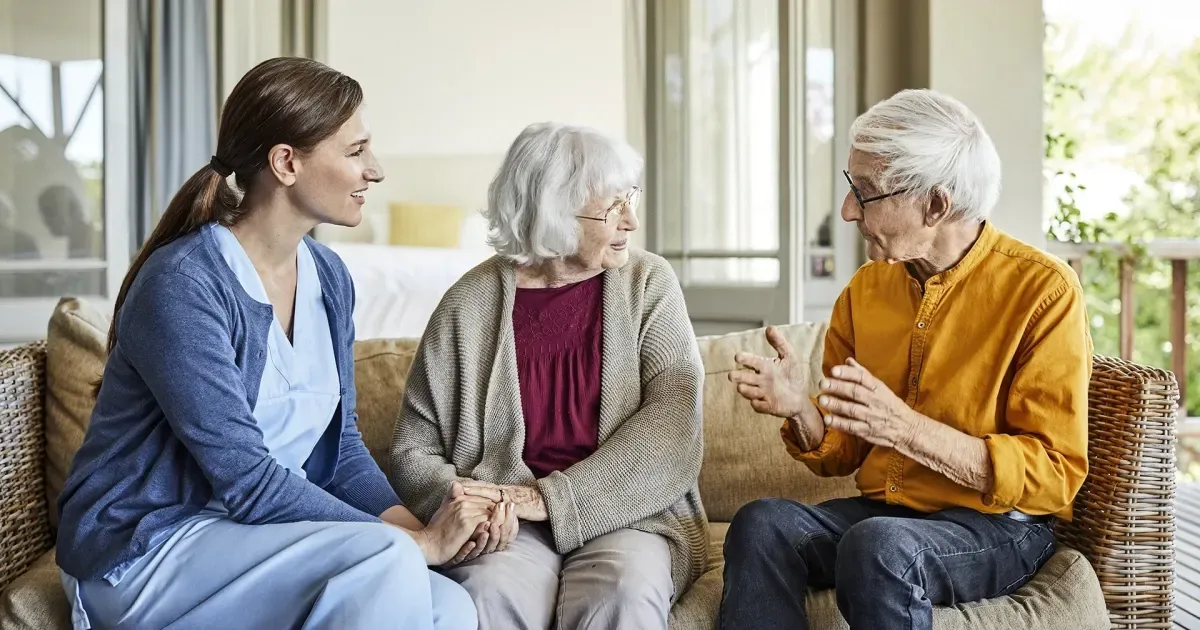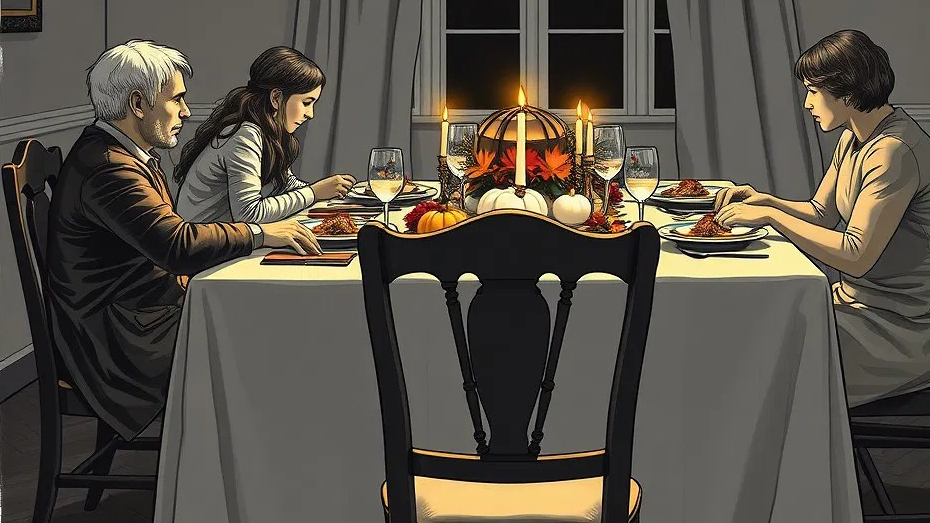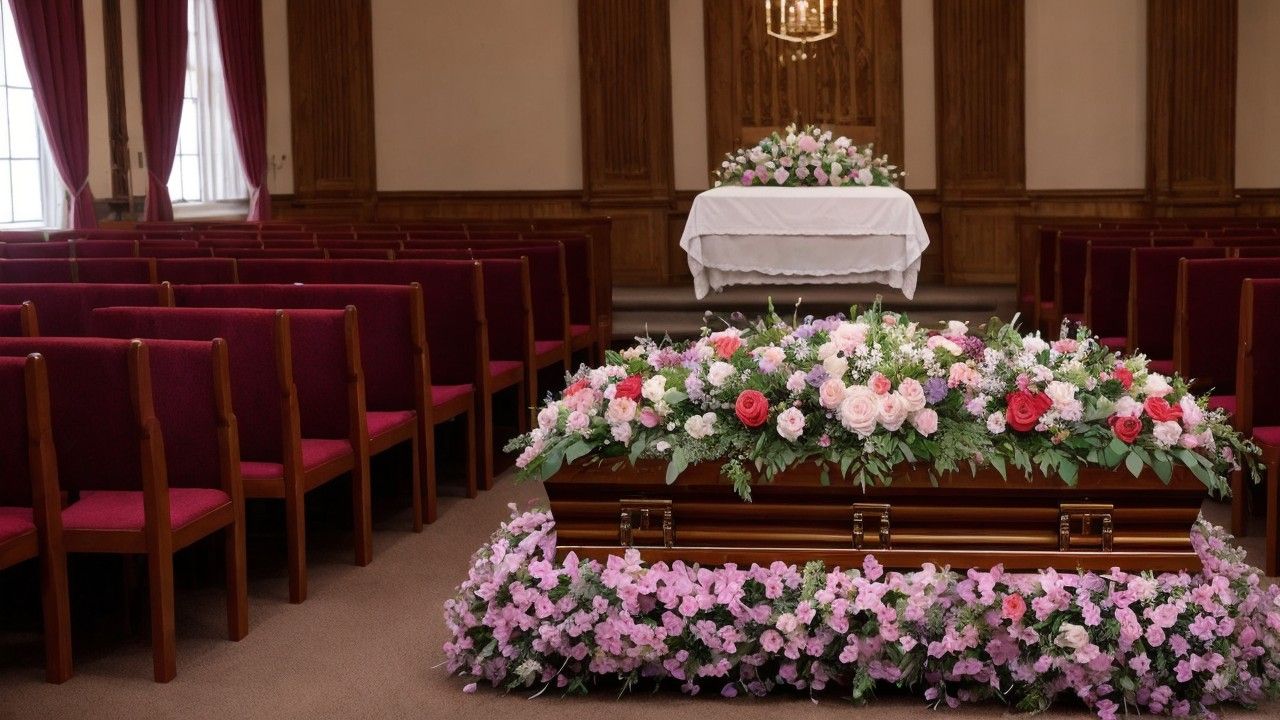I'm Teri, a humanitarian whose experiences after losing my child inspired me to tell my story. Most of my conversations revolve around human suffering and resilience.
Find a Trusted Proivder
Helpful Links

Business Hours
- Mon - Fri
- -
- Sat - Sun
- Closed

Share This Article
So, someone you've known most of your life, shared special moments with and grown to love deeply is in hospice care. A terminal illness or advanced age is paving the way for nature to take its course. What do you tell them when the end is imminent?
This emotionally intense moment calls for introspection. You can reassure them of your love and speak peace to their soul. If you're struggling with the right words and how to say them, this post will help inspire your last conversation with a loved one on their deathbed. Read on.
How To Know When A Loved One Is Dying
If, while in hospital care, medical intervention is no longer viable, the doctor will declare their medical prognosis and how much time they have left. They'll then be placed under hospice care for close monitoring and high-level comfort.
Depending on the nature of their medical condition, the process of dying is usually gradual, with the body shutting down slowly. Notable indicators include:
- Reduced blood circulation in the limbs
- Irregular breathing
- Confusion
- Lost appetite with no nourishment from food needed
- Their skin becomes cold to the touch with pale patches, although they may not feel any temperature changes themselves.
When these signs intensify, they're getting ready for the flight. This is the time to say those last words, which can weigh heavily on the family. Some even wonder if a dying loved one hears them.
This is a valid concern. According to research by the University of British Columbia, people on end-of-life care can retain their awareness even if they're not conscious. So, while they may not be responsive, rest assured that they can hear you, and your words will bless their departing soul.
What To Do For A Dying Loved One
Caring for a dying loved one can be a privilege and an opportunity to experience firsthand life's most significant passage. It can also be a traumatizing experience.
If you're fortunate enough to be by their side when they take their flight, you may not know how best to minister to them at their last moment. It's always advisable to keep the atmosphere conducive while focusing on their comfort. Here are a few things you can do for a dying person.
1. Set The Mood And Environment
Myths aside, dying people naturally retain their senses even if they're unresponsive, meaning disturbances of any nature should be kept at bay. The National Institute of Aging recommends a quiet environment since most patients prefer silence with few people around them.
That means the TV should be switched off, the lights should be dimmed, and visitors should move to another room. You can also mitigate external noise around the home.
2. Maintain Silence
Heavy sleeping is another indicator that a person is approaching the end of life. During those moments of deep sleep, a person could be experiencing some sort of “inner work” as they deal with the past and let go of life's attachments.
While this is happening, you may want to sit silently and hold their hand. If you're spiritual, you can join them in this inner work with prayer and meditation. The goal is to create a safe space for them to release their spirit.
3. Speak Comforting Words
Are you unsure what to do for a dying loved one, and you live far away? You can speak comforting words to them through the phone or video. Have the caregiver put the phone on speaker and let your voice soothe the tension in the room. Remember to focus on words of love, affirmation, and reassurance. Just be sure not to bombard them with too much talk. Speak softly and sparingly.
4. Play Good Music
Music and laughter are natural medicines for the soul. However, there's no laughter in death, so only music would do. Various studies show that music supports relaxation and reduces anxiety. Even the Bible confirms as much (1 Samuel 16:14-23). Playing soft music in the background can be an excellent service to a dying person, especially if you play their favourite artist or genre.
Slow instrumental music is a better choice. Depending on what the dying person loved, you can play country, soul, or opera at moderate volume. If they were religious, harp music or gospel choirs are ideal. However, if you detect discomfort, switch off the music and allow silence.
5 Last Things To Say To A Dying Loved One
Once you've set the right atmosphere for the day and the hour, here's how to say goodbye to a dying loved one.
1. Tell Them You Love Them
“I love you.” Three simple yet powerful words. Telling a dying loved one you love them brings them peace and assurance. They'll die happy knowing that they're going from a place of love to another place of love.
2. Thank Them
Thank them for their love and kindness and everything they did to make your life better and complete. Thank them for sharing their life with you. Thank them for their sacrifice and contribution to humanity. Thank them for their wonderful personality. Just thank them for being themselves.
3. Forgive Them
Whatever you bind on earth will be bound in heaven, so says the scriptures. Death is the ultimate finality with no reverse. Knowing when you or a loved one will die is a privilege in a way. Why? It allows us to repent, forgive, and make peace with everyone. If there's anything you've been holding on to from the past, use the opportunity to let go.
4. Ask For Their Forgiveness
Perhaps you're the one who made a mistake, failed them or caused them pain in word or deed. If that's the case, conduct a little introspection and do the right thing. Genuinely tell them how sorry you are. Use the opportunity to redeem yourself and set each other free.
5. Reassure Them
You may not know it, but your loved one's inner power remains active in the face of death. They could be experiencing inner turmoil and concern for those they're leaving behind. Yes, everyone will feel the pain, but you should reassure them that you'll be okay and that they're free to go.
Tell them they've lived a good life, and you'll always love them. If young children are involved, reassure them they'll be well cared for.
Release Them
When all is said and done, say goodbye and release them to their God.
“There are no goodbyes for us. Wherever you are, you will always be in my heart.” —Mahatma Gandhi.
“What we have once enjoyed, we can never lose. All that we love deeply becomes a part of us.” —
Helen Keller.
Last Words For A Dying Loved One
Birth and death are like siblings, yet they come with different emotions. At birth, we're ushered into the world in pain and joy. At death, we again leave others in pain but minus the joy. Ordinary goodbyes are hard enough; how much more a permanent separation like death?
However heartbreaking, we should focus on the most human element that brings us all together. Whatever you tell a dying loved one, do it with love. If you'd rather have a professional by your side, we understand. Please feel free to talk to a Death Doula or Grief Counselor today.
Related Articles
Related Articles






